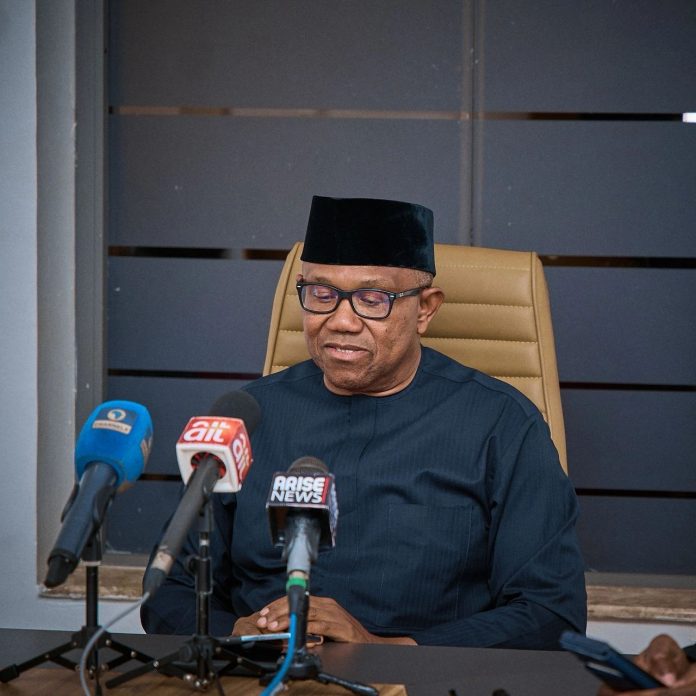Former presidential candidate of the Labour Party, Peter Obi, has urged Nigerians not to lose hope in the country’s future, declaring that “a great Nigeria is still possible” as the nation marked its 65th Independence Anniversary on Wednesday.
In a statement titled “A Great Nigeria Is Still Possible,” Obi reflected on the promise of the country at independence in 1960 and lamented decades of missed opportunities caused by what he described as “tragic failures of leadership.”
“Today should be a day of joy and remembrance, a day to celebrate the struggles of our heroes who fought to free Nigeria from colonial rule. It should be a day for gratitude to Almighty God for His blessings on our nation,” Obi said.
He recalled the optimism that greeted independence on October 1, 1960, when the world saw Nigeria as an emerging African powerhouse. “Such was our potential that Time Magazine predicted the rise of a true African superpower that would lead the continent with pride. Our founding fathers fought for independence with confidence, passion, and determination to build a prosperous Nigeria that would stand alongside the world’s most advanced nations,” he said.
The former Anambra State governor lamented that the vision of the founding leaders was derailed by poor governance. “Unfortunately, tragic failures of leadership derailed this vision. Yet despite these setbacks, Nigeria has always shown resilience,” he noted.
Obi pointed to Nigeria’s return to democracy in 1999 as a sign of that resilience. “In 1999, we overcame military dictatorship and restored democracy, beginning a renewed journey toward prosperity, freedom, and justice. That journey helped us build Africa’s largest economy and strengthen democratic institutions,” he said.

However, he accused the ruling All Progressives Congress (APC) of squandering the nation’s potential in recent years. “Over the last decade, under the APC’s incompetent, divisive, and corrupt leadership, Nigeria has been greatly diminished,” he charged.
Highlighting Nigeria’s past economic achievements, Obi said the country once had a more promising fiscal outlook. “By the end of 2007, our total debt was about N2.5 trillion, only 10 percent of GDP, after President Obasanjo’s government secured debt forgiveness of over 30 billion dollars. By 2014, Nigeria had become Africa’s largest economy and was primed to achieve middle-income status,” he recalled.
He added that the 2015 general election, in which a ruling party was defeated for the first time, had signaled hope for stronger democratic progress. “In 2015, for the first time, a ruling party was defeated in a presidential election, marking another milestone for our democracy,” he said.
Obi’s Independence Day message struck a tone of both lament and resolve, calling on Nigerians to unite behind the goal of rebuilding the country. “Despite all we have lost, I remain convinced that a great Nigeria is still possible,” he declared.
The Labour Party leader’s remarks come as Nigeria grapples with economic challenges, mounting debt, and persistent insecurity — issues he has consistently blamed on poor governance and lack of visionary leadership.
Highlighting Nigeria’s past economic achievements, Obi said the country once had a more promising fiscal outlook. “By the end of 2007, our total debt was about N2.5 trillion, only 10 percent of GDP, after President Obasanjo’s government secured debt forgiveness of over 30 billion dollars. By 2014, Nigeria had become Africa’s largest economy and was primed to achieve middle-income status,” he recalled.




